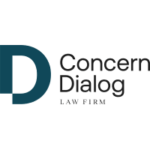-
What are the main methods of resolving disputes in your jurisdiction?
In Austria, civil litigation remains the predominant method of dispute resolution, with approximately 90,000 cases filed annually before Austrian courts. [Note: In 2024, 76,498 contentious civil proceedings and 15,430 non-contentious proceedings were recorded; see the Report on the Activities of Courts and Public Prosecutors dated 7 March 2025.]
Alongside litigation, alternative dispute resolution (“ADR”) mechanisms are gaining prominence. Arbitration, in particular, plays a key role in the Austrian legal system and is especially relevant in the context of international commercial disputes.
Mediation is also available under Austrian law. However, it is a purely voluntary process that requires mutual consent at every stage. Either party may terminate the mediation at any time without providing reasons.
Institutions such as the Vienna International Arbitral Centre (“VIAC”) are central to the development and administration of ADR in Austria. VIAC oversees both arbitration and mediation proceedings and offers procedural frameworks through its VIAC Rules of Arbitration (“Vienna Rules”) and VIAC Rules of Mediation (“Vienna Mediation Rules”).
-
What are the main procedural rules governing litigation in your jurisdiction?
Civil litigation in Austria is primarily governed by the Austrian Code of Civil Procedure (Zivilprozessordnung, “ZPO”), which provides a comprehensive and codified set of rules for conducting civil and commercial proceedings. The ZPO is complemented by the Jurisdictional Code (Jurisdiktionsnorm, “JN”), which regulates the organisation and the rules on subject-matter, territorial, and functional jurisdiction. In addition, the Enforcement Code (Exekutionsordnung,”EO”) governs the enforcement of judgments, and the Introductory Act to the ZPO (Einführungsgesetz, “EGZPO”) contains transitional and supplementary provisions.
A key feature of the Austrian system is the principle of party autonomy (Parteiherrschaft), under which the parties determine the scope, timing, and content of the proceedings. They decide whether to file a claim, what evidence to submit, and may end the case by settlement, withdrawal, or acknowledgment. The court may only decide on issues brought forward by the parties. Austrian civil procedure is further characterised by key principles such as orality, immediacy, and concentration of hearings, with the court taking an active role in managing proceedings while maintaining judicial neutrality.
-
What is the structure and organisation of local courts dealing with claims in your jurisdiction? What is the final court of appeal?
Austria has a three-tier court system for civil matters, structured as follows:
- District Courts (Bezirksgerichte, “BG”): District Courts serve as courts of first instance for minor civil disputes, particularly those involving amounts in dispute of up to EUR 15,000.
- Regional Courts (Landesgerichte”LG”): Regional Courts function as first-instance courts for higher-value claims (above EUR 15,000) and as appellate courts for decisions rendered by District Courts.
- Higher Regional Courts (Oberlandesgerichte, “OLG”): Higher Regional Courts act primarily as court of appeal, reviewing appeals from decisions of the Regional Courts. There are four OLGs in Austria: Vienna, Linz, Graz, and Innsbruck.
- Supreme Court (Oberster Gerichtshof, “OGH”): The OGH is the final court of appeal in civil matters. It does not re-evaluate facts but reviews legal questions of fundamental importance. Its decisions shape the Austrian legal landscape and Austrian jurisprudence.
In addition, certain courts have specialised jurisdiction, such as the Commercial Courts of Vienna (Bezirksgericht für Handelssachen in Wien, Handelsgericht Wien) and the Labour and Social Courts. These special courts focus on specific subject matters.
-
How long does it typically take from commencing proceedings to get to trial in your jurisdiction?
The Austrian judiciary is widely recognised for its efficiency. The time between filing a claim and the first court hearing in Austria depends on several factors, including the complexity of the case, the workload of the competent court, and the procedural conduct of the parties involved.
According to official statistics, the average duration for resolving litigious civil cases in 2022 was notably short—approximately 142 days at first instance, 85 days at second instance, and 102 days at third instance (European Commission, 2024 Rule of Law Report Country Chapter on the rule of law situation in Austria [SWD(2024) 820 final]).
-
Are hearings held in public and are documents filed at court available to the public in your jurisdiction? Are there any exceptions?
In Austria, court hearings in civil cases are generally held in public. The public nature of hearings serves to ensure transparency, accountability, and public confidence in the judicial system. However, there are exceptions – for example in family law or where the court may decide to hold hearings partially or fully behind closed doors to protect sensitive (business) interests.
While hearings are generally public, the case files and documents filed with the court are not publicly accessible. Access to court files is strictly limited to the parties involved in the proceedings and their legal representatives. Third parties have no general right to inspect or obtain copies of court documents unless they can demonstrate a legitimate legal interest.
The rulings of the Austrian Supreme Court are published in anonymised form to protect the privacy of the parties involved. Moreover, an increasing number of anonymised decisions by the Higher Regional Courts are also being published, contributing further to transparency and consistency in case law. These decisions are accessible through the official Austrian legal information system (Rechtsinformationssystem des Bundes, “RIS”). Not published decisions from the Austrian Supreme Court or the Higher Regional Courts and anonymised decisions of lower courts may be requested for a small fee.
-
What, if any, are the relevant limitation periods in your jurisdiction?
In Austria, limitation periods are primarily regulated by the Austrian General Civil Code (Allgemeines Bürgerliches Gesetzbuch, “ABGB”).
The standard limitation period for most civil claims is 30 years. However, claims, in particular those business related, may be subject to shorter limitation periods, typically 3 years, including claims for damages.
It is essential for claimants to be aware of these limitation periods, as expiry of the limitation period will result in the claim becoming statute-barred and unenforceable. It should be noted that the court does not assess the statute of limitations on its own motion; rather, it must be invoked by the opposing party.
-
What, if any, are the pre-action conduct requirements in your jurisdiction and what, if any, are the consequences of non-compliance?
In Austria, there are no general, mandatory pre-action conduct requirements comparable to the formal pre-action protocols found in some common law jurisdictions. Nevertheless, specific procedural rules apply in certain contexts:
- Payment Order Procedure (Mahnklageverfahren): For monetary claims up to EUR 75,000, Austrian law mandates a simplified payment order procedure. Under this process, the court issues a conditional payment order without holding a hearing. The defendant then has up to four weeks to file an objection. If no objection is raised, the payment order becomes legally binding and enforceable. Should the defendant object, the dispute proceeds to standard civil litigation.
- Mandatory Conciliation Procedures (Schlichtungsverfahren): In specific areas, such as tenancy disputes, neighbour relations, or professional association conflicts (e.g., involving architects, lawyers, or medical doctors), Austrian law requires parties to engage in conciliation proceedings before initiating formal litigation.
Since Austria does not impose universal pre-action protocols, there are generally no procedural sanctions for non-compliance. However, where statutory pre-action requirements exist—such as mandatory conciliation—failure to comply can result in the dismissal of the claim.
-
How are proceedings commenced in your jurisdiction? Is service necessary and, if so, is this done by the court (or its agent) or by the parties?
In Austria, civil proceedings are commenced by filing a statement of claim with the competent court. The claim must meet formal requirements, including inter alia the designation of the parties, the relief sought, and a substantiated statement of facts. Depending on the amount in dispute, the claim must be signed by an attorney (mandatory legal representation for claims exceeding EUR 5,000). The service of claims is handled by the court and effected through the Postal Service.
Attorneys are required to file their submissions electronically via a dedicated platform known as “WebERV”.
-
How does the court determine whether it has jurisdiction over a claim in your jurisdiction?
In Austria, courts determine their jurisdiction over a claim based on both subject-matter jurisdiction and territorial jurisdiction, as governed primarily by the Austrian Jurisdiction Act (Jurisdiktionsnorm, “JN”) and, in cross-border matters, by applicable EU regulations.
Jurisdiction is assessed ex officio by the court at the time the claim is filed. If the court finds that it lacks jurisdiction, it must either dismiss the case or, where appropriate, transfer it to the competent court.
In addition, parties may raise objections to the court’s jurisdiction, but must do so at the first available opportunity—typically in their initial response to the claim. The court is then required to rule on such objections, either as a preliminary issue or within its final decision, depending on the procedural context.
-
How does the court determine which law governs the claims in your jurisdiction?
In Austrian courts, the applicable law is determined according to conflict of laws rules, which distinguish between domestic and international cases. In domestic cases Austrian law is applied by default, as there is no foreign element requiring choice of law analysis. In international cases the applicable law is determined primarily based on EU private international law regulations, which take precedence over national rules. In rare cases not covered by EU regulations or international treaties, Austrian conflict of laws rules — notably the Austrian Private International Law Act (Internationales Privatrecht Gesetz, “IPR-Gesetz”) and certain provisions of the Jurisdiction Act (Jurisdiktionsnorm, “JN”) — may apply.
Austrian courts respect valid choice of law clauses, provided they do not violate mandatory Austrian law or public policy (ordre public). In consumer and employment cases, choice of law may not deprive the weaker party of mandatory protections of their habitual residence.
-
In what circumstances, if any, can claims be disposed of without a full trial in your jurisdiction?
In Austria, civil claims can be resolved without a full trial under several procedural mechanisms that aim to increase efficiency and reduce unnecessary litigation. These include:
- Payment Order Procedure (Mahnklageverfahren): For monetary claims up to EUR 75,000, claimants are required to initiate proceedings via the Payment order procedure (Mahnklageverfahren). If the defendant does not file an objection within four weeks, the order becomes enforceable without a hearing.
- Judgment by Default (Versäumungsurteil): If a defendant fails to respond to the claim or does not appear at the first scheduled hearing, the court may issue a default judgment upon the claimant’s request. This is contingent upon the claim being sufficiently substantiated and procedurally admissible.
- Judgment upon Acknowledgment (Anerkenntnisurteil): If the defendant expressly acknowledges the claim, either in writing or in court, the court may issue a judgment based on that acknowledgment without further proceedings. This expedites resolution and avoids unnecessary litigation costs.
- Striking out inadmissible claims: The court may reject a claim ex officio without a hearing if it is manifestly inadmissible — for example, due to lack of jurisdiction, lack of standing, failure to meet formal requirements, or violation of mandatory pre-action requirements (e.g., absence of a required conciliation procedure in tenancy disputes).
- Withdrawal and Settlement: Claims can also be disposed of early if the claimant withdraws the claim, or if the parties reach a settlement.
-
What, if any, are the main types of interim remedies available in your jurisdiction?
Austrian civil procedure provides for a variety of interim remedies (einstweilige Verfügungen) designed to secure legal protection before or during the main proceedings. These remedies are governed by the Austrian Enforcement Act (Exekutionsordnung, “EO”) and aim to preserve the status quo, prevent irreparable harm, or secure future enforcement.
Interim relief must be requested either before or during the main proceedings. The applicant must demonstrate the claim on a prima facie basis and show that there is a concrete risk of frustration of enforcement or irreparable harm. Courts may issue such measures without hearing the opposing party if the situation is particularly urgent. Once granted, interim injunctions are immediately enforceable, but temporary in nature, and generally lapse if the main action is not filed within a certain period.
-
After a claim has been commenced, what written documents must (or can) the parties submit in your jurisdiction? What is the usual timetable?
In proceedings before regional courts, the statement of claim is served on the defendant by the court, which simultaneously sets a four-week deadline for the submission of a written response. This formal procedure does not apply before district courts, where a hearing may be scheduled immediately.
Until one week prior to the first hearing, parties may file a preparatory brief (Vorbereitender Schriftsatz). The court can also request or invite further written submissions or documentation.
Parties may generally submit written arguments and evidence until the close of the oral hearings. However, the court has discretion to reject late submissions if they are deemed to unduly delay proceedings or cause procedural disadvantages to the other party. As a rule of practice, it is considered procedurally safe to submit all key documents and arguments by the time of the first oral hearing.
-
What, if any, are the rules for disclosure of documents in your jurisdiction? Are there any exceptions (e.g. on grounds of privilege, confidentiality or public interest)?
Austria does not follow a broad or automatic disclosure system as seen in many common law jurisdictions. Instead, Austrian civil procedure adheres to the principle of party-led evidence presentation: each party is responsible for submitting the documents on which it relies to support its claims or defences.
There is no general right to inspect or request access to the opposing party’s documents. However, the court may order a party to submit documents they already relied on in the course of proceedings and —or in rare cases, a third party—to produce a specific document if it is deemed relevant and material to the resolution of the dispute.
Such a request is subject to strict conditions and may be denied where the party in possession of the document has a valid legal reason to withhold it. Grounds for refusal include legal privilege, professional confidentiality (e.g. by lawyers, doctors, or notaries), and overriding public or private interests, including business secrecy.
In practice, the Austrian disclosure regime is narrow, and fishing expeditions are not permitted. The focus remains on targeted, court-controlled production of evidence necessary to decide the case.
-
How is witness evidence dealt with in your jurisdiction (and in particular, do witnesses give oral and/or written evidence and what, if any, are the rules on cross-examination)? Are depositions permitted?
Each party may propose witnesses to support their case. If the court deems the proposed testimony relevant to the case, it will summon the witness to appear. Absent objection from both parties, the court may also call witnesses ex officio.
Witnesses are required to attend hearings when summoned and must testify truthfully. Since Austrian procedural law generally requires that evidence must be taken in person before the court, written witness statements are inadmissible. Depositions or pre-trial sworn witness statements taken outside the court are not permitted in Austrian civil procedure.
During the hearing, witnesses are examined individually and out of each other’s presence. The judge conducts the initial examination and takes the lead in questioning. Thereafter, the party that nominated the witness may conduct a follow-up examination, followed by cross-examination by the opposing counsel.
-
Is expert evidence permitted in your jurisdiction? If so, how is it dealt with (and in particular, are experts appointed by the court or the parties, and what duties do they owe)?
Expert evidence is permitted and commonly used in Austrian civil litigation to assist the court in technical, scientific, or specialized matters beyond the judges’ expertise.
Experts can be appointed either by the court ex officio or upon request of one or both parties. The court usually appoints an independent expert from an official list or based on recommendations, ensuring impartiality. Parties can also object to a court-appointed expert for justified reasons (e.g., lack of independence). Experts owe their duty primarily to the court, not the parties. They must provide an objective, impartial, and comprehensive report addressing the questions posed by the court or the parties.
The expert submits a written expert opinion, which is disclosed to the parties. The parties can comment and raise objections. The court can summon for oral examination, where parties’ counsel can also question the expert.
Expert opinions are an important part of the evidentiary record but are not binding on the court. The judge evaluates the expert evidence alongside other evidence before reaching their decision.
-
Can final and interim decisions be appealed in your jurisdiction? If so, to which court(s) and within what timescale?
As a rule, Austrian law distinguishes between judgments (Urteile) that address the merits of the case and court orders (Beschlüsse) concerning procedural matters. In general appeals must be submitted in writing, outlining the grounds for contesting the decision.
Judgments rendered by courts of first instance may generally be appealed within four weeks of service. The competent appellate court depends on the court of first instance: decisions of district courts are appealed to the Regional Court (Landesgericht), while decisions of regional courts are appealed to the Higher Regional Court (Oberlandesgericht). Appeals at this stage may address both factual and legal issues.
In exceptional cases, a further appeal may be brought before the Austrian Supreme Court (Oberster Gerichtshof). The question of whether an appeal to the Supreme Court is admissible depends on the amount in dispute and whether the case involves a question of fundamental legal significance. In certain cases (e.g. labor and social law disputes, many family law disputes) an appeal to the Supreme Court is generally possible.
Procedural court orders are subject to a shorter appeal period and are generally required to be filed within 14 days of service. In some instances, such orders cannot be appealed immediately and may only be contested as part of an appeal against the subsequent judgment on the merits.
-
What are the rules governing enforcement of foreign judgments in your jurisdiction?
The enforcement of foreign judgments in Austria is governed by a combination of international treaties, European Union regulations, and domestic law.
- Within the European Union: For judgments originating from other EU Member States (except Denmark), the enforcement regime is primarily regulated by the Brussels I Regulation (EU Regulation No 1215/2012). Under this regulation, foreign judgments are recognized and enforced automatically without the need for a special procedure, subject to limited exceptions such as violation of the ordre public.
- Outside the European Union: For judgments from non-EU countries, enforcement depends on bilateral or multilateral treaties, or otherwise on domestic law. If no treaty applies, recognition and enforcement are granted only if the foreign judgment meets certain criteria.
- Procedure: Recognition and enforcement require filing an application with the competent Austrian court. The procedure is subject to the Enforcement Code (Exekutionsordnung, “EO”).
-
Can the costs of litigation (e.g. court costs, as well as the parties’ costs of instructing lawyers, experts and other professionals) be recovered from the other side in your jurisdiction?
In Austria the prevailing party in civil litigation is generally entitled to recover litigation costs from the losing party. This includes both court fees and reasonable legal costs incurred, such as fees for lawyers or experts.
- Court and legal proceeding costs: The court fees are typically calculated based on the amount in dispute and include filing fees and procedural charges. Other costs such as expenses for court-appointed experts may also be recovered additionally.
- Attorney fees: The reimbursement of attorney fees is subject to statutory scales regulated by the Attorney Fees Act (Rechtsanwaltsgebührengesetz, “RATG”). The court usually orders the losing party to reimburse the winning party for these reasonable and necessary fees based on the RATG. Please be aware that, agreements between clients and attorney regarding hourly fees are not affected. Only the reimbursement of attorney fees is limited by the RATG.
If a party succeeds only partially, costs may be apportioned accordingly between the parties. The court has some discretion in awarding costs, especially in cases with equitable considerations (such as family law) or where procedural misconduct occurred.
-
What, if any, are the collective redress (e.g. class action) mechanisms in your jurisdiction?
Austria does not have a comprehensive class action system similar to those found in the United States or other jurisdictions. However, several mechanisms for collective redress exist aimed at facilitating group claims.
In July 2024, Austria implemented the EU Representative Actions Directive (Directive (EU) 2020/1828), introducing a formal mechanism that allows qualified entities—such as consumer protection associations, chambers of commerce, and trade unions—to bring representative actions seeking both injunctive relief and redress on behalf of at least 50 consumers. This regime applies on an opt-in basis and is adjudicated exclusively by the Commercial Court of Vienna. The filing of a representative action suspends the limitation period for the individual claims covered by the action.
Before this implementation, Austrian law already allowed for declaratory relief. Consumer organisations could seek a declaration that a certain practice or contractual clause was unlawful, but they could not pursue compensation or redress on behalf of individuals.
In this vein, Austria has long relied on an assignment-based model often referred to as the “Austrian-style class action”. Under this approach, multiple claimants assign their individual claims to a single claimant—typically a consumer association or specially established entity—which then pursues the claims collectively in a single proceeding. Although each claim remains legally distinct, this model has proven effective in mass litigation cases such as consumer loan disputes or cartel damages claims.
-
What, if any, are the mechanisms for joining third parties to ongoing proceedings and/or consolidating two sets of proceedings in your jurisdiction?
Third-party intervention may be initiated either by one of the parties to the dispute or by the third party itself. To be admitted, the third party must establish a legal interest in the outcome of the proceedings. Depending on the potential impact of the judgment, the third party will either be granted full party status (streitgenössische Nebenintervention) or be allowed to participate with limited procedural rights as a “supporting intervenor” (einfache Nebenintervention). A third party invited to join the proceedings is not obliged to do so and may even opt to support the opposing side.
The court has discretion to consolidate two or more proceedings involving the same parties and substantially similar legal or factual issues, to avoid conflicting rulings and reduce duplication.
Ultimately, the decision to join third parties or consolidate proceedings lies with the court, balancing judicial economy with fairness to the parties.
-
Are third parties allowed to fund litigation in your jurisdiction? If so, are there any restrictions on this and can third party funders be made liable for the costs incurred by the other side?
Third-party litigation funding is permitted in Austria and is increasingly utilised, particularly in high-value commercial disputes, arbitration proceedings, and collective actions.
Austrian law does not provide detailed statutory regulation of third-party funding, but the practice is widely accepted under general legal principles. Courts have confirmed that third-party funding is lawful and does not violate the quota litis prohibition, which applies to Austrian lawyers and prohibits them from entering into contingency fee agreements based purely on the success of the case.
There is currently no general duty to disclose the existence of third-party funding in ordinary civil litigation. Funders are not directly liable for any adverse cost orders. The funded party remains solely responsible for their own legal fees and for any costs awarded to the opposing side.
However, with the implementation of the EU Representative Actions Directive in July 2024, Austria introduced a formal representative action regime that allows qualified entities to bring redress actions. Under this regime, specific safeguards to third-party funding apply:
- The funder must not be a competitor of the defendant, nor may they be economically or legally dependent on the defendant.
- The funder must not exert undue influence over the qualified entity or the conduct of the litigation, thereby ensuring that the collective consumer interest remains paramount.
- The existence of third-party funding must be disclosed at the earliest opportunity, and additional details must be provided to the Federal Cartel Prosecutor upon request.
As in general litigation, third-party funders in representative actions are not personally liable for adverse costs; the qualified entity remains responsible.
-
What has been the impact of the COVID-19 pandemic on litigation in your jurisdiction?
The COVID-19 pandemic impacted litigation procedures in Austria, prompting courts and legal practitioners to adapt rapidly to maintain access to justice while ensuring health safety.
- Remote hearings: To mitigate disruptions, Austrian courts increasingly adopted remote hearings via videoconference, especially for procedural hearings, witness examinations, and other hearings that do not require full oral proceedings.
- Impact on dispute resolution: The pandemic also encouraged parties to consider alternative dispute resolution methods such as mediation to avoid delays and reduce court congestion.
-
What is the main advantage and the main disadvantage of litigating international commercial disputes in your jurisdiction?
Austria offers a stable, well-developed legal system with high-quality judicial expertise and a strong tradition of impartiality and rule of law.
Proceedings before Austrian courts are generally considered highly efficient and, compared to many other jurisdictions, are conducted considerably faster—often making Austria a preferred forum for parties seeking timely resolution. Austria’s central location in Europe and its participation in major EU regulations and international treaties further enhance its role as a strategic and neutral venue for cross-border dispute resolution. These frameworks also facilitate the recognition and enforcement of both domestic judgments and foreign arbitral awards.
Austria’s civil law system does not follow common law adversarial procedures, which can be unfamiliar and less flexible for parties used to common law litigation styles as well as the fact that the recovery of legal costs is limited.
-
What is the most likely growth area for commercial disputes in your jurisdiction for the next 5 years?
The most likely growth area for commercial disputes in Austria over the next five years is expected to be technology-related disputes, including those involving data protection, cybersecurity, and digital contracts. As digitalisation accelerates across industries, conflicts arising from software licensing, cloud services, and intellectual property in the digital space are increasing.
Additionally, sustainability and environmental compliance disputes (Environmental, Social, Governance, “ESG”) are anticipated to grow, driven by stricter EU regulations and increasing corporate responsibility.
In addition, the recent implementation of the EU Representative Actions Directive in Austria is expected to contribute to a rise in collective redress and class action-style litigation. Qualified entities are now empowered to bring representative actions for both injunctive relief and redress on behalf of consumers. This will likely lead to an increase in high-profile group litigation.
-
What, if any, will be the impact of technology on commercial litigation in your jurisdiction in the next 5 years?
Technology is expected to significantly transform commercial litigation in Austria over the next five years, improving efficiency, accessibility, and transparency.
- Use of AI and analytics: Artificial intelligence tools may assist judges and lawyers in legal research, document review, and case analysis, enabling faster and more accurate decision-making.
- E-discovery and data management: The rise of electronic evidence and large data volumes will make e-discovery tools essential for managing and presenting evidence in complex commercial disputes.
- Alternative dispute resolution online: Online platforms for mediation and arbitration may become more common, offering faster and more cost-effective dispute resolution options.
With increased reliance on technology, courts and parties will face new challenges regarding data security, confidentiality, and compliance with privacy laws. Overall, technology will make litigation in Austria more efficient but will also require adaptation from courts, practitioners, and parties to new tools and processes.
Austria: Litigation
This country-specific Q&A provides an overview of Litigation laws and regulations applicable in Austria.
-
What are the main methods of resolving disputes in your jurisdiction?
-
What are the main procedural rules governing litigation in your jurisdiction?
-
What is the structure and organisation of local courts dealing with claims in your jurisdiction? What is the final court of appeal?
-
How long does it typically take from commencing proceedings to get to trial in your jurisdiction?
-
Are hearings held in public and are documents filed at court available to the public in your jurisdiction? Are there any exceptions?
-
What, if any, are the relevant limitation periods in your jurisdiction?
-
What, if any, are the pre-action conduct requirements in your jurisdiction and what, if any, are the consequences of non-compliance?
-
How are proceedings commenced in your jurisdiction? Is service necessary and, if so, is this done by the court (or its agent) or by the parties?
-
How does the court determine whether it has jurisdiction over a claim in your jurisdiction?
-
How does the court determine which law governs the claims in your jurisdiction?
-
In what circumstances, if any, can claims be disposed of without a full trial in your jurisdiction?
-
What, if any, are the main types of interim remedies available in your jurisdiction?
-
After a claim has been commenced, what written documents must (or can) the parties submit in your jurisdiction? What is the usual timetable?
-
What, if any, are the rules for disclosure of documents in your jurisdiction? Are there any exceptions (e.g. on grounds of privilege, confidentiality or public interest)?
-
How is witness evidence dealt with in your jurisdiction (and in particular, do witnesses give oral and/or written evidence and what, if any, are the rules on cross-examination)? Are depositions permitted?
-
Is expert evidence permitted in your jurisdiction? If so, how is it dealt with (and in particular, are experts appointed by the court or the parties, and what duties do they owe)?
-
Can final and interim decisions be appealed in your jurisdiction? If so, to which court(s) and within what timescale?
-
What are the rules governing enforcement of foreign judgments in your jurisdiction?
-
Can the costs of litigation (e.g. court costs, as well as the parties’ costs of instructing lawyers, experts and other professionals) be recovered from the other side in your jurisdiction?
-
What, if any, are the collective redress (e.g. class action) mechanisms in your jurisdiction?
-
What, if any, are the mechanisms for joining third parties to ongoing proceedings and/or consolidating two sets of proceedings in your jurisdiction?
-
Are third parties allowed to fund litigation in your jurisdiction? If so, are there any restrictions on this and can third party funders be made liable for the costs incurred by the other side?
-
What has been the impact of the COVID-19 pandemic on litigation in your jurisdiction?
-
What is the main advantage and the main disadvantage of litigating international commercial disputes in your jurisdiction?
-
What is the most likely growth area for commercial disputes in your jurisdiction for the next 5 years?
-
What, if any, will be the impact of technology on commercial litigation in your jurisdiction in the next 5 years?




























